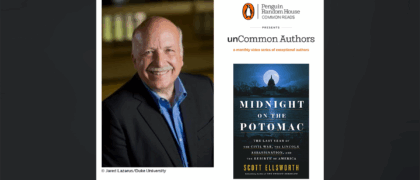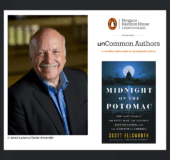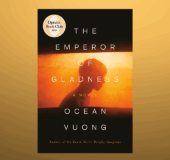By Emily Esfahani Smith, author of The Power of Meaning: Crafting a Life That Matters (Crown, January 2017)
When I was a senior in high school, I thought I knew what I wanted to do with my life: I was going to be a doctor. I loved science, and easing the suffering of others, I reasoned, was a noble purpose. My freshman year in college, I enrolled in pre-med classes and worked in a lab. But as I got caught up in the details of the pre-med track—dissecting mice brains, filling out lab reports, and foregoing humanities classes in order to take organic chemistry—the idea of being a doctor increasingly left me cold. I had a nagging feeling that there was something else that I should be doing with my life. What that was, though, I had no idea. After dropping pre-med, I drifted from one career track to the next, unsure where my path lay. I felt lost.
My experience was not unique. Surveys show that college students across the country are suffering from a crisis of meaning, which helps explain why they feel more depressed, anxious, and alienated than ever. When they arrive on campus, they are, often for the first time in their lives, expected to make their own decisions about how to spend their time and energy—and the choices they make during these critical years of emerging adulthood will affect the rest of their lives. But many students have no greater sense of purpose to help them navigate an overwhelming menu of classes and activities. Many of them will default to following career paths that they think will bring them wealth and success, but research suggests that pursuing those kinds of goals often leaves students feeling empty. Others, like me, will drift from one path to the next, unmoored and unmotivated. Nearly all of them are hoping to find meaningful careers and lead fulfilling lives. But as they enter adulthood, they have to figure out by themselves how to do so—how can they discover their calling? How can they craft a life that matters?
These are difficult questions to answer, in part because meaning can often feel esoteric and abstract. But as I researched and wrote The Power of Meaning, I realized that didn’t have to be the case: there are sources of meaning all around us. Meaning lies in connecting and contributing to something bigger than the self—to other people, to the community, or to something sacred. You can find belonging in a brief and caring connection with a barista. You can find purpose by helping a friend move out of his dorm. You can gain a deeper understanding of your life’s story by reflecting on a pivotal relationship. You can look up at a starry night sky and feel awe and transcendence.
Beyond infusing day-to-day life with meaning, these four pillars—belonging, purpose, storytelling, and transcendence—serve as guides for each of us. But they’re particularly essential in college, as students grapple with big questions about who they are and what unique contribution they can make to the world.
I hope my book will not only challenge students’ ideas about how to live, but also provide them with some wisdom and guidance as they make their way through young adulthood.
EMILY ESFAHANI SMITH writes about culture, relationships, and psychology. Her work has appeared in the Wall Street Journal, The Atlantic, the New York Times, and other publications. She is also a columnist for The New Criterion and an editor at Stanford University’s Hoover Institution. She studied philosophy at Dartmouth College and has a master of applied positive psychology from the University of Pennsylvania. She lives with her husband in Washington, DC.





